Time Personal

How can I balance work and personal life using time management techniques ?
The article provides a comprehensive guide on balancing work and personal life by employing time management techniques. It emphasizes the importance of setting clear SMART goals for both professional and personal aspects, creating a well-organized schedule, learning to say no when necessary, using time management tools, and prioritizing self-care. These strategies are aimed at helping individuals achieve a healthier work-life balance, improve productivity, and enhance overall well-being.

How can women balance their personal and professional relationships effectively ?
Balancing personal and professional relationships is a challenge that many women face in their lives. It requires careful planning, effective communication, and a strong support system. Here are some tips on how women can balance their personal and professional relationships effectively: 1\. Prioritize Your Time: Plan your day in advance, allocating time for work, family, friends, and self-care activities. This will help you stay organized and focused throughout the day. Learn to say "no" to unnecessary commitments and distractions that may interfere with your personal and professional life. 2\. Communicate Effectively: Discuss your needs and expectations with your partner, family members, and colleagues. This will help them understand your priorities and support you in achieving a healthy work-life balance. Don't hesitate to ask for help when needed. Whether it's delegating tasks at work or asking a friend to watch your child, having a support system in place can make all the difference. 3\. Practice Self-Care: Make time for activities that help you relax and recharge, such as exercise, meditation, or hobbies. Taking care of yourself will not only improve your physical and mental health but also enhance your relationships with others. Maintain healthy habits by eating well, getting enough sleep, and staying active to maintain your energy levels and overall well-being. 4\. Build Strong Professional Relationships: Attend industry events and conferences to expand your professional network and build relationships with colleagues and mentors who can offer guidance and support. Seek out mentors who can provide valuable insights into balancing personal and professional relationships, as well as offer guidance on career development. 5\. Embrace Technology: Take advantage of technology tools like calendar apps, task managers, and video conferencing software to streamline your workflow and stay connected with loved ones even when you're away from home. While technology can be helpful, it's important to set boundaries and avoid letting it consume too much of your time and attention. 6\. Remember Your Goals and Values: Always remember your goals and values when making decisions about how to spend your time and energy. This will help you stay focused on what truly matters most to you.

What are some effective time management techniques for women looking to balance their personal and professional lives ?
Balancing personal and professional lives is a challenge faced by many women today. Here are some effective time management techniques that can help: 1. Prioritize Tasks: Identify important tasks and create a to-do list to stay organized. 2. Set Goals: Set short-term and long-term goals, and break them down into smaller steps for easier achievement. 3. Delegate Responsibilities: Delegate household chores and work tasks to free up time and manage workload effectively. 4. Learn to Say No: Avoid overcommitment by setting boundaries and saying no to requests that do not align with your goals or priorities. 5. Take Breaks: Schedule regular breaks and incorporate relaxation techniques to manage stress and maintain productivity. 6. Use Technology Wisely: Use time management apps and automate repetitive tasks to save time and focus on more important tasks. 7. Practice Self-Care: Prioritize physical and mental health by getting enough sleep, eating well, exercising regularly, and seeking support when needed.

How can I distinguish myself from others with a unique personal image ?
**How to Establish a Unique Personal Image** 1. **Identify Your Passions and Interests**: List your hobbies and reflect on your values. 2. **Develop Your Skills and Expertise**: Keep learning and specialize in a niche within your field. 3. **Craft Your Style**: Create a signature style and pay attention to personal grooming. 4. **Build Your Digital Presence**: Curate social media profiles and create a personal website or blog. 5. **Network with Like-minded People**: Join communities and attend relevant events. 6. **Showcase Your Achievements**: Compile a portfolio and collect testimonials. 7. **Stay True to Yourself**: Maintain authenticity and focus on self-improvement.

How can I measure the effectiveness of my personal image ?
Measuring the effectiveness of your personal image is crucial for maintaining a positive reputation and achieving your goals. Here are some ways to evaluate how well your personal image is working for you: - Self-Assessment: Ask yourself if you're confident in your appearance, communication style, and behavior, and if you receive positive feedback from others. - Feedback from Others: Seek honest opinions from trusted friends, family members, or colleagues about your personal image. - Observe Reactions: Pay attention to how people react when they meet you for the first time to gauge your first impression. - Track Your Success: Keep track of your achievements and setbacks to see if your personal image is helping you achieve your goals. - Online Presence: Check your social media profiles and websites to ensure they reflect the image you want to project, and pay attention to online engagement as an indicator of effectiveness. - Professional Development: Consider taking courses or attending workshops to enhance your personal image, and evaluate whether these efforts have led to improvements. Continuously assess and adjust your approach as needed to maintain a positive and impactful personal brand.

Can you recommend any online resources or courses for personal safety training ?
Online resources and courses for personal safety training offer valuable opportunities to improve self-defense skills. Recommended platforms include Krav Maga Global, Gracie University, Aikido World, and Personal Defense Network, each providing comprehensive curriculums and certified instructors.
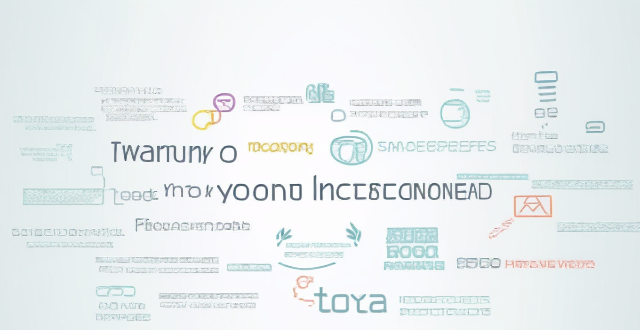
How can I protect my personal information online ?
In today's digital age, protecting your personal information online is crucial. To safeguard sensitive data, one should use strong and unique passwords, keep software and systems up-to-date, be careful with public Wi-Fi networks, be wary of phishing attacks, and limit the amount of personal information shared online. These steps can significantly reduce the risk of having personal information compromised online.
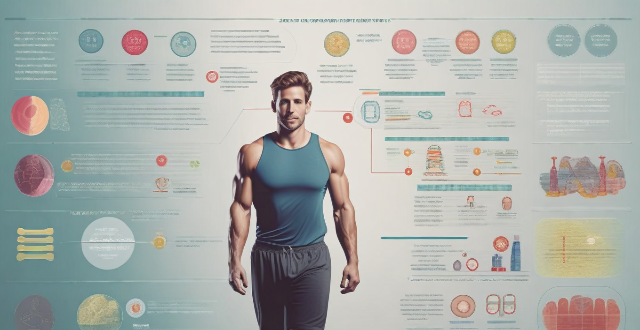
How does sports contribute to personal growth ?
Sports significantly contribute to personal growth by enhancing physical fitness, mental agility, emotional well-being, and life skills such as resilience, leadership, and adaptability. Regular participation not only maintains a healthy weight but also fosters discipline, self-esteem, and teamwork. Overall, sports are instrumental in developing well-rounded individuals capable of facing life's challenges with confidence and competence.

What role does nutrition play in maintaining personal hygiene ?
The article emphasizes the importance of nutrition in maintaining personal hygiene. It suggests consuming nutrient-rich foods, developing healthy dietary habits, and supporting the immune system through nutrition to improve overall health and hygiene.
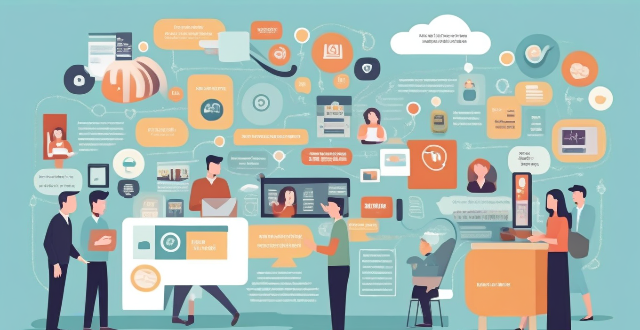
How do celebrities use social media to promote their personal brand ?
Celebrities use social media to promote their personal brand by being authentic, engaging with fans, collaborating with others, maintaining consistent brand messaging, and promoting their own projects.

How do celebrities spend their leisure time ?
Celebrities enjoy leisure activities such as traveling, pursuing hobbies, spending time with family and friends, and engaging in philanthropy. They explore new cultures, take luxury vacations, participate in humanitarian trips, practice artistic pursuits, stay fit through sports, prioritize family gatherings and friendships, and give back to society through fundraising events and advocacy work.

What are some effective personal finance management strategies ?
Managing personal finances effectively is crucial for achieving financial stability and long-term success. Here are some effective personal finance management strategies: 1. Create a budget that tracks income, expenses, savings, and adjustments. 2. Build an emergency fund with at least 3-6 months' worth of living expenses in a high-yield savings account or money market fund. 3. Pay off high-interest debt using the snowball or avalanche method. 4. Invest for long-term goals by starting early, diversifying, and staying consistent. 5. Protect your finances with health insurance, disability insurance, and life insurance. 6. Plan for retirement by starting early, maximizing contributions, and investing wisely. 7. Educate yourself through reading books, taking courses, and seeking professional advice.

How do I dress professionally as a woman without sacrificing my personal style ?
Dressing professionally as a woman doesn't mean sacrificing personal style. Here are some tips: stick to neutrals and classic colors, invest in quality basics, incorporate trendy pieces appropriately, pay attention to fit and cut, and accessorize wisely. By following these guidelines, you can create a wardrobe that reflects both your professionalism and personal style.

How does team sports contribute to personal growth and development ?
Team sports contribute significantly to personal growth and development by helping individuals develop various skills, qualities, and values essential for success in all aspects of life. These include communication skills, leadership abilities, teamwork and collaboration, discipline and responsibility, goal setting and achievement, emotional intelligence, and time management. Participating in team sports can help individuals become well-rounded individuals who are prepared for whatever challenges lie ahead.

In what ways can technology enhance personal safety training experiences ?
Technology has significantly transformed personal safety training by making it more engaging, effective, and accessible. Here are some ways technology is enhancing personal safety training experiences: 1. **Virtual Reality (VR) and Augmented Reality (AR) Simulations** - Provide immersive learning environments for practicing responses to dangerous situations without real risks. - Offer real-time feedback and assessment to identify areas for improvement and enhance skill retention. 2. **Online Courses and Webinars** - Make training more accessible and convenient by allowing individuals to participate from anywhere at any time. - Incorporate interactive content and multimedia to maintain engagement and aid comprehension. 3. **Mobile Applications** - Allow on-the-go learning about personal safety techniques. - Incorporate gamification elements and send reminders or notifications about important safety tips. 4. **Wearable Devices and IoT Integration** - Enable proactive safety measures through wearable devices programmed to alert users of potential threats. - Monitor health factors like heart rate variability to help individuals make informed decisions about their safety. 5. **Social Media and Online Communities** - Serve as platforms for peer support and sharing of best practices within personal safety networks. - Enable rapid dissemination of safety warnings and updates, ensuring critical information reaches a wide audience quickly. Overall, technology offers numerous tools to help individuals develop the skills they need to protect themselves in potentially dangerous situations, making personal safety training more engaging, accessible, and effective.

What are some common ways that companies collect and use personal data ?
Companies employ various direct and indirect methods to collect personal data, which they then use for marketing, product development, enhancing customer experiences, and ensuring security.

What are some examples of successful celebrity personal brands ?
Celebrity personal brands are a powerful tool in the entertainment industry. They allow celebrities to establish themselves as more than just an actor, singer, or athlete. Instead, they become a brand that represents their unique personality, values, and interests. Here are some examples of successful celebrity personal brands: - Oprah Winfrey: known for her philanthropic efforts, media empire, and inspirational speaking. - Kim Kardashian: rose to fame on reality TV, launched multiple successful businesses, and is a social media influencer. - Dwayne "The Rock" Johnson: began as a professional wrestler, transitioned into acting, and is known for his dedication to fitness. - Beyoncé: Grammy-winning musician, fashion icon, and activist for social justice issues. - Elon Musk: founder of several successful companies, innovator, and active on social media despite being a busy CEO.

What are the benefits of having a well-defined personal image ?
Having a well-defined personal image is crucial for individuals in both their personal and professional lives. It can significantly impact how others perceive them, which can lead to various opportunities and advantages. A well-defined personal image can help establish credibility and trustworthiness, make positive first impressions, increase professional opportunities, enhance self-confidence, improve interpersonal relationships, become a more influential leader, and gain greater control over one's reputation. By actively managing how you present yourself online and offline, you can ensure that people have an accurate understanding of who you are and what you stand for.

Can playing sports improve one's self-confidence and personal growth ?
Playing sports can contribute to self-confidence and personal growth by developing skills, overcoming challenges, fostering teamwork and support, promoting discipline and responsibility, encouraging goal setting and achievement, and enhancing social interaction and empathy. Incorporating sports into one's lifestyle can be highly beneficial for overall well-being and personal development.

How can families make time for both sports and quality family time ?
In today's fast-paced world, finding a balance between work, personal interests, and family time can be challenging. For families with members who are passionate about sports, integrating quality family time and sports activities requires careful planning and a commitment to making the most of every moment together. Here's how families can make time for both sports and quality family time: ### **Prioritize and Plan** #### _Set Clear Priorities_ - Discuss as a family what each member values most in terms of sports and family time. - Agree on a set of priorities that everyone can commit to. #### _Create a Shared Calendar_ - Use a family calendar to schedule sports practices, games, and family activities. - Make sure everyone has access to the calendar and updates it regularly. ### **Integrate Sports into Family Time** #### _Attend Sports Events Together_ - Make attending sports games or practices a family outing. - Cheer on the athlete together, making it a shared experience. #### _Play Sports as a Family_ - Engage in sports activities that everyone enjoys, such as bike rides, hikes, or backyard games. - Encourage non-athletic family members to participate in ways that suit their interests and abilities. ### **Quality Over Quantity** #### _Make Every Moment Count_ - Even short periods of time can be meaningful if everyone is fully engaged. - Turn off distractions like phones and TVs to focus on each other. #### _Regular Family Meetings_ - Hold regular family meetings to discuss schedules, concerns, and plans. - Use this time to reinforce the importance of both sports and family time. ### **Flexibility and Adaptability** #### _Be Open to Change_ - Recognize that unforeseen events may require adjustments to plans. - Maintain a flexible attitude to accommodate changes without stress. #### _Communicate Openly_ - Encourage open communication about feelings and scheduling conflicts. - Address any issues promptly to avoid resentment or burnout. ### **Support and Encouragement** #### _Encourage Each Other_ - Support family members in their sports endeavors and recognize their efforts. - Acknowledge the sacrifices made by non-participating family members. #### _Celebrate Achievements Together_ - Celebrate sports achievements as a family, no matter how big or small. - Create traditions around these celebrations to strengthen family bonds. ### **Conclusion** By prioritizing, planning, integrating sports into family time, focusing on quality interactions, being flexible, and providing support, families can successfully make time for both sports and quality family time. It's all about finding the right balance that works for your unique family dynamics and embracing the enriching experiences that both realms offer.

What are some tips for building a strong personal brand ?
Building a strong personal brand is crucial in today's competitive world. It helps you stand out and showcase your unique skills, values, and personality. To build a strong personal brand, start by defining your brand through identifying your strengths, passions, and values. Develop your online presence by creating a professional website and optimizing your social media profiles. Establish your expertise by sharing your knowledge and networking with others in your field. Maintain consistency in your messaging and actions. Monitor your reputation by staying active online and addressing negative feedback calmly. Continuously evolve your brand by staying up-to-date and reassessing your brand periodically. Building a strong personal brand takes time, effort, and consistency, but it can help you achieve your goals and make a positive impact on those around you.

How can sports help individuals develop leadership skills and personal growth ?
Participating in sports can help individuals develop leadership skills and foster personal growth by enhancing goal-setting, teamwork, resilience, decision-making under pressure, accountability, confidence building, discipline, physical health, emotional intelligence, and social interaction.

What are the long-term effects of neglecting my personal image ?
Neglecting your personal image can have long-term negative effects on various aspects of your life, including relationships, career opportunities, and overall well-being. It can make forming new connections difficult, strain existing relationships, limit professional advancement, and make finding employment more challenging. Additionally, neglecting your personal image can lead to lower self-esteem, confidence, and increased stress and anxiety. However, improving your personal image through quality clothing, good hygiene, regular exercise, practicing good posture, and seeking professional help when needed can positively impact your life in numerous ways.
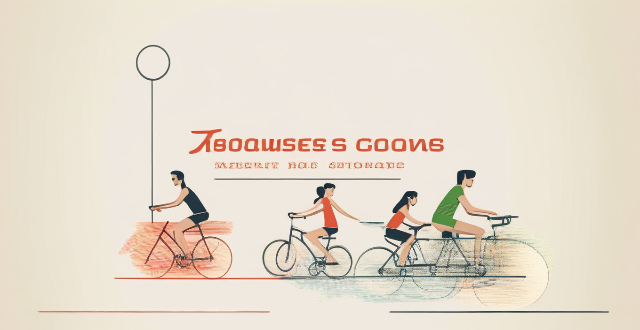
How do sports help in building character and personal growth ?
The text discusses the various ways in which sports can contribute to building character and promoting personal development. It highlights how sports can help develop discipline, promote teamwork, cultivate perseverance, encourage leadership, enhance self-esteem, teach adherence to rules, facilitate social interaction, improve physical health, and teach individuals how to handle pressure. The author emphasizes that the lessons learned through sports participation can translate into valuable life skills that are essential for success both in sports and beyond. Overall, the text suggests that sports offer an array of benefits that stretch far beyond physical fitness and play a significant role in shaping character and fostering personal growth.

What is the significance of personal hygiene in food handling ?
Personal hygiene is crucial for food safety, public health protection, and maintaining quality in the food industry. It prevents cross-contamination, reduces disease transmission, and enhances food quality. Adherence to personal hygiene standards impacts regulatory compliance, consumer trust, and economic implications within the food industry.
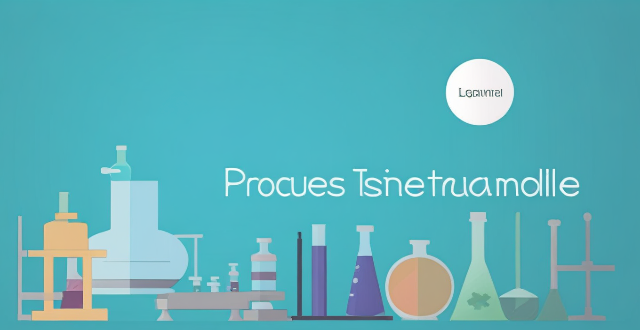
Is it necessary to hire a personal trainer for strength training ?
The text discusses the pros and cons of hiring a personal trainer for strength training. Pros include customized workouts, accountability, proper form, variety, and goal setting. Cons are cost, scheduling conflicts, personal chemistry, self-motivation, and accessibility. The decision to hire a personal trainer depends on individual circumstances and preferences.
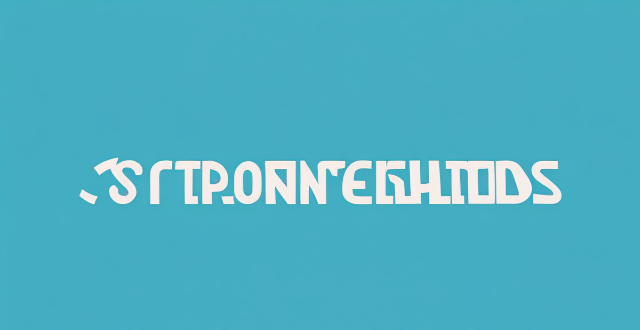
How often should I update my personal image to stay relevant ?
The text discusses the importance of updating one's personal image to stay relevant in a rapidly changing world. It emphasizes that updating your personal image doesn't mean chasing every trend but evolving authentically to represent who you are and where you're going. The frequency of updates should be based on significant life changes, seasonal changes, and an annual review of your image. Elements to consider for updates include appearance, online presence, skillset, and network. Practical tips for updating your personal image include staying informed, seeking feedback, investing in quality, and embracing change. Overall, the text suggests that regular updates to your personal image can help maintain and enhance your personal brand, opening doors to new opportunities and ensuring success in both personal and professional life.

How can I control who has access to my personal data ?
How can I control who has access to my personal data? To control who has access to your personal data, it's important to: 1. Understand what personal data you have and where it is stored. 2. Review privacy policies and settings of websites and apps you use regularly. 3. Use strong passwords and two-factor authentication to protect your accounts. 4. Limit the amount of personal data you share online. 5. Regularly review and update your privacy settings. By taking these steps, you can help protect your personal data from unauthorized access and ensure that it remains private.

Can sports be used as a tool for personal growth and self-improvement ?
The text discusses the various ways in which sports can be used as a tool for personal growth and self-improvement. The author highlights the following aspects: - Mental toughness and resilience: Facing challenges and overcoming failure through sports can cultivate mental toughness and build resilience. - Teamwork and communication: Working together and effective communication are essential skills developed through team sports, which can enhance interpersonal relationships and group dynamics. - Discipline and time management: The structured approach required in sports can improve personal organization and time management skills, along with goal setting and strategic thinking. - Physical health and well-being: Sports contribute significantly to physical health by promoting fitness and endurance, and can also improve mental health by combating depression and anxiety. - Leadership and initiative: Sports provide opportunities for individuals to step up as leaders and develop problem-solving abilities, encouraging proactive behavior. - Self-confidence and self-esteem: Achieving mastery in sports can boost an athlete's confidence and self-esteem, fostering a positive self-image. - Adaptability and learning agility: Sports require athletes to adapt quickly to new tactics or game plans, encouraging a mindset of continuous learning that extends beyond the sporting realm. Overall, the text emphasizes that sports offer a comprehensive toolkit for personal development, encompassing benefits that extend far beyond the playing field. Engaging in sports can be a powerful catalyst for self-improvement and personal growth.